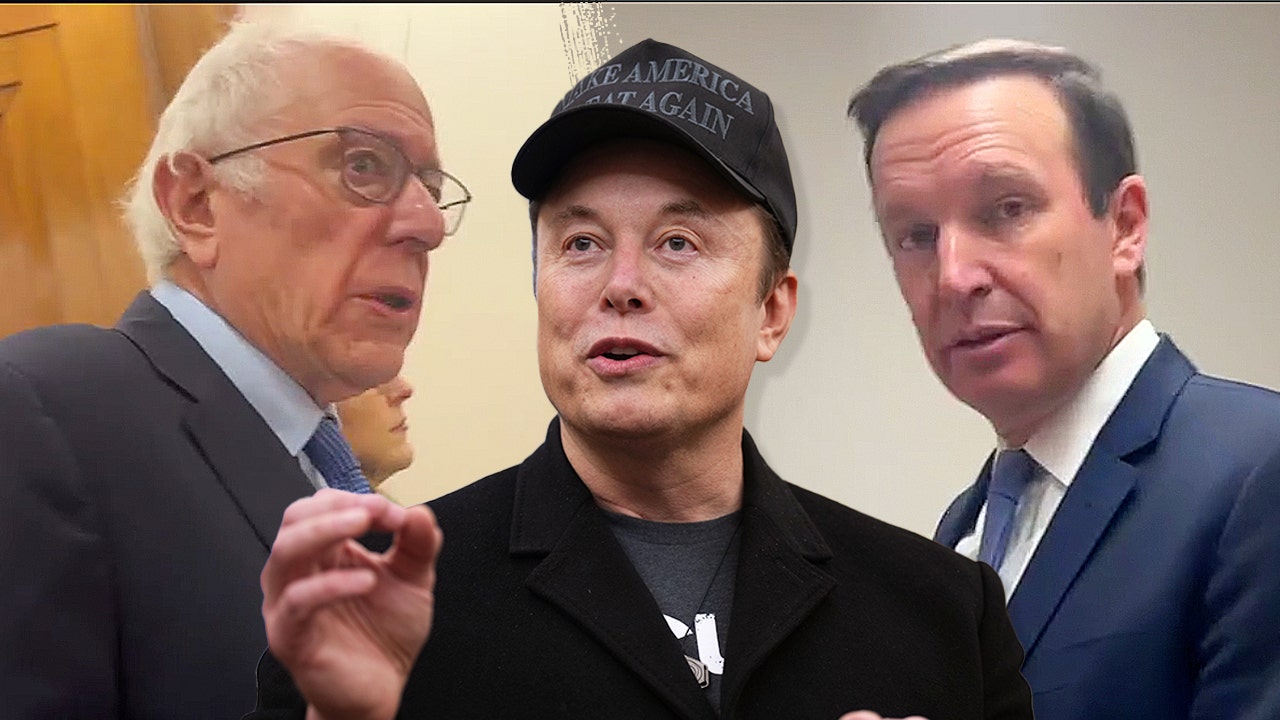Politics
Dems say they’re against government waste, but they hate DOGE more

The Great Spending Debate: Democrats and Elon Musk at Odds Over Federal Efficiency
The debate over federal spending has taken a new turn in Washington, D.C., as Senate Democrats face off against Elon Musk and his Department of Government Efficiency (DOGE) over how to tackle wasteful government expenditures. While both sides agree that some federal spending is unnecessary and could be better managed, the methods being used by DOGE have sparked sharp criticism from Democratic lawmakers.
Senate Majority Leader Chuck Schumer, D-N.Y., set the tone for the Democratic response when he told Fox News Digital, "Of course there’s some wasteful spending, but you don’t use a meat ax and cut everything." Schumer emphasized the need for a more thoughtful and targeted approach, saying, "We need to look at each program. We need to go through Congress and see what’s wasteful and move to eliminate it." This sentiment reflects a broader concern among Democrats that DOGE’s sweeping cuts are too broad and potentially harmful to critical programs that benefit American families.
Democrats Criticize DOGE’s Approach: Efficiency vs. Harm
Democratic lawmakers have been vocal in their opposition to DOGE’s methods, arguing that the department’s efforts are not truly about improving government efficiency but rather about serving the interests of billionaires like Elon Musk. Sen. Chris Murphy, D-Conn., was frank in his criticism, stating, "DOGE is turning the country over to the billionaires. They’re looking to make money for themselves. They’re not interested in government efficiency." Murphy acknowledged that there are areas where federal spending could be reduced, such as prescription drug costs, but he argued that DOGE is not focusing on these issues. Instead, he claimed, the department is targeting programs that are vital to everyday Americans.
Sen. John Hickenlooper, D-Colo., echoed this sentiment, saying, "There’s always things that can be improved," but he laughed at the idea that DOGE’s current approach was the right way to achieve those improvements. Similarly, Sen. Andy Kim, D-N.J., acknowledged that waste and inefficiency exist but warned that the chaos caused by DOGE’s cuts could have unintended consequences. "You’re having federal employees getting kicked out, and then we realize that we need them for bird flu or nuclear regulation and other things like that," Kim said. He expressed a willingness to work in a bipartisan manner to address these issues but made it clear that DOGE’s current strategy was not the solution.
DOGE’s Mission and the Backlash Against It
DOGE, which was established to identify and cut wasteful federal spending, has been actively reviewing federal agencies and uncovering billions of dollars in expenditures that it deems unnecessary. While the department’s mission is to streamline government operations, its methods have drawn fire from critics like Schumer, who accused DOGE of targeting important programs such as community health centers in Medicaid. Schumer argued that these programs are essential to American families and should not be on the chopping block.
Meanwhile, former President Donald Trump, who is closely associated with DOGE’s efforts, has floated the idea of sending 20% of the savings from the department’s cuts directly to taxpayers in the form of personal checks, with another 20% going toward paying down the national debt. This proposal has only added fuel to the fire, with Democrats arguing that it prioritizes political optics over meaningful reform.
Bipartisan Agreement on Waste, But Not on Methods
Despite their differences, there is some common ground between Democrats and Republicans on the issue of wasteful spending. Senators Bernie Sanders, I-Vt., and Tammy Baldwin, D-Wis., both agreed that there are areas where federal spending could be reduced, though they did not specify where they would make those cuts. This general agreement on the need for fiscal responsibility, however, does not extend to the methods being used by DOGE.
The Democratic criticism of DOGE centers on the idea that while waste exists, it should be addressed in a way that is both thoughtful and transparent. Schumer and others have called for a more deliberate process that involves Congress and ensures that critical programs are not inadvertently harmed. This approach stands in stark contrast to what they see as DOGE’s heavy-handed and politically motivated cuts.
The Road Ahead: Challenges and Opportunities
As the debate over federal spending continues, it remains to be seen how DOGE’s efforts will play out. While the department has already made significant strides in identifying and cutting wasteful expenditures, the backlash from Democrats and other critics suggests that the road ahead will be fraught with challenges.
For Democrats, the challenge will be to find a way to work with Republicans on fiscal reform while protecting the programs they believe are essential. For DOGE, the task will be to demonstrate that its cuts are not only effective but also responsible and in the best interest of the American people.
In the end, the debate over federal spending is about more than just dollars and cents—it’s about the kind of government Americans want and need. As the conversation continues, one thing is clear: finding a balanced and bipartisan approach to addressing wasteful spending will be essential to moving forward.